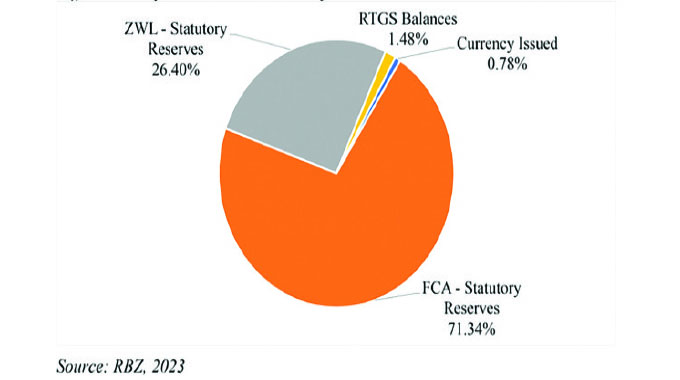Unpacking Special Economic Zones
Albert Norumedzo In the Money
Indications that Government is considering establishing special economic zones as part of efforts to revive key industrial sectors of the economy around the country has been greeted with enthusiasm mixed with anxiety by economic analysts.
As the economy is visibly in apprehension mode, varying ideas have been put forward as solutions to the immediate crippling challenges that have bedevilled our economy.
In this issue, I will seek to unpack special economic zones and their benefits to the economy and most importantly, the feasibility of implementation them in the present environment.
Special economic zones are designated areas in countries that possess special economic regulations that are different from other areas in the same country.
Moreover, these regulations tend to contain measures that are conducive to foreign direct investment.
Companies operating in these zones normally receive tax incentives (in the form of tax exemptions and rate reductions) and lower service charges for water or electricity or exemption from particular regulations and legislation.
The main objective of establishing these zones is to stimulate economic activity in designated areas.
A number of countries have established special economic zones, among them China, India, Brazil while in Africa we have Uganda, Kenya, Ghana and a few other countries.
Special economic zones are designed to attract foreign direct investment.
Setting up SEZ will attract investors to set up sustainable capital investment, which would have otherwise not been possible to achieve with internal capacity.
At present Government expenditure is skewed towards recurrent expenditure at 96 percent against 4 percent for capital expenditure.
Many of the cities, notably Bulawayo are now a pale shadows of themselves as companies have either closed or relocated to Harare.
This then mean if Government wants to designate Bulawayo as a special economic zone, it will have to put in place attractive incentives in the form of tax exemptions or tax holidays for companies operating in Bulawayo in certain industries to woo investors to the city as opposed to setting up shop in Harare for instance.
Once this happens, the resulting investment inflow into Bulawayo will in turn stimulate economic activity and create employment capacity in the city.
National export capacity and industrial capacity utilisation (currently below 40 percent and falling) will respond in kind.
The benefits are very much a reflection of the increase in foreign direct investment. However, questions have been raised on whether such zones will benefit the country.
In my view it’s undoubted that special economic zones will benefit the country, however, the issue is on the feasibility of creating sustainable and effective zones, which will achieve the desired economic cause.
For this to happen several questions have to be answered.
Does the country have the right framework in terms of policy, history, ability and willingness?
What do we have to offer investors that will encourage them to invest in our zones? Can we afford to extend tax exemptions?
Can our public utilities be subsidized or consistently supplied in the SEZ?
What other incentives can we afford to extend without cannibalising the little that we have in order to encourage investment and are we prepared to make the necessary sacrifices in order to attract investment?
What investor attracting factors are we willing and able to set in motion in order to attract investment?
FDI as a percentage of GDP has gone down to historic low levels of around 3 percent, confronted by lack of full implementation of key economic policies, a huge debt overhang and deteriorating relations with some members of the international community among other complications.
Much of these factors still remain at play despite the ongoing efforts to realign efforts and policies to the broader economic interest.
Recent remarks by responsible authorities expressing a willingness to approach the Indigenisation and Empowerment Act on a sector-specific and case-by-case basis are very much welcome and vital to attracting the much-needed investment into various sectors of the economy.
However, public statements made on varying occasions are not sufficient to reassure investors of Government’s commitment.
Government needs to communicate this in writing for investors to be convinced.
The establishment of special economic zones as an industry revival and investor attracting strategy comes secondary to policy realignment and rectification that needs to be done to improve the country’s international appeal.
Therefore, special economic zones cannot succeed in this country if we are ranked among the worst places to do business in the world by the likes of World Bank or the IMF.
Bold steps need to be taken to engage the Bretton Woods institutions effectively and aggressively.
The establishment of working and fruitful partnerships with potential funders remains key; otherwise the SEZ will remain confined to the blue print with no economic activity on the ground. The successful establishment of special economic zones hinges on our overall ability as a country to attract meaningful and sustainable foreign direct investment, which in itself is dependent on obvious factors like policy realignment, public sector transparency, property rights regularisations and effective resource allocation and utilisation.
- Albert Norumedzo is an equity and alternative investment analyst. He can be contacted via E-mail: [email protected]






Comments